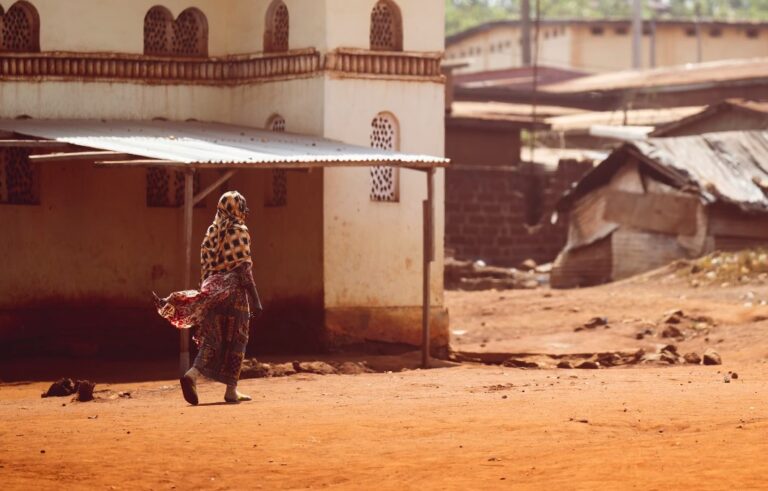We can understand the poverty ratio from the data– 534 million out of 1.1 billion people living in poverty belong to Sub-Saharan Africa. This is not a coincidence but rather an intricate interplay of multiple factors.
The regional challenges, socio-economic factors, and array of disparities have their role in shaping the worldly image of Africa. Africa represents majority of poorest countries in the list of world figure.
The governments of these locations are not open to these issues. The unstable political approach towards this issue is making the condition even more miserable. Let’s explore the major countries that top the list of poorest countries in Africa.
Table of Contents
1. South Sudan
At purchasing power parity (PPP), the gross domestic product (GDP) per person of South Sudan is over $476. The major reason for this setback dates back to 2011 when this country gained independence. They tasted independence after a long year of dispute and losses in the course of the civil war.
However, the fight is a never-ending story of Sudan. The country still has disputes related to oil revenue and land border tensions. Apart from political tensions, South Sudan is not also free from situations like famine and major infrastructural challenges.
2. Burundi
The current GDP of Burundi is nearly $890, which is a serious economic image of the country. The country has a stain of a deep governmental corruption record. Normal citizens of the country are free from basic facilities and opportunities.
The country’s geographical location is far from the feasibility of food production and trade. Poor food and resource availability leads to pervasive malnutrition within the community.
3. Central African Republic (CAR)
The GDP-PPP per capita of CAR is close to $1109 as per the resource. The poverty of CAR is the result of a long conflict with France. After the independence in 1960, the government took no effective steps to replenish the economic losses.
CAR is a landlocked nation, which makes it difficult for exports and imports. Medical facilities are grappling with challenges, leading to a decline in health services. These economic and political challenges are yet to be addressed by the government bodies.
4. Democratic Republic of the Congo
Democratic Republic of Congo has a GDP-PPP per capita of $1579. Multiple elements, encompassing persistent humanitarian crises, authoritarian governance, political instability, and a lengthy history of conflict, contribute to the situation.
The DRC may not be a resource-backed country, yet it has lacunas that are not allowing them to come out of poverty. The untapped potential, combined with limited opportunities and the ability to harness these values, renders it a force of unknown magnitude.
5. Niger
The adversity of the country Niger is not only a result of societal conflict but also a natural selection. Niger is a hotspot climatic crisis a major part of the country has poor fertility and is a challenging place for farming.
The poverty of the region is very high, which can be represented by the fact that almost 80% of the population is living at the expense of only €2 per day. This aspect also stems from the poorest literacy rate in all of Africa and a dearth of work options. Only 21 to 33 percent of the population are literate, which significantly contributes to constructing barriers for opportunities to enter these regions.
6. Mozambique
Mozambique’s GDP per capita, measured in purchasing power parity (PPP), is approximately $1584. Among Africa’s poorest nations is Mozambique. The region has shown a 7% yearly GDP growth constantly, but the economic growth is centralized to only a few locations. The governments need to work on the distribution of opportunities and resources.
After the attack of Islamic insurgent groups in 2017, the country has dropped the consistency of its growth rate. However, the impressive approach of the government towards this domain looks positive.
Read more: The 10 richest countries in Africa by GDP
7. Malawi
In Malawi, the GDP per capita at purchasing power parity (PPP) is approximately $1688. Almost 80% of the population in Malawi is dependent on agriculture, which makes them highly dependent on nature. Compounding the challenge is the fact that Malawi is landlocked.
The constant grappling with import and export concerns exacerbates the situation. These are the key reasons which results in listing Malawi among the top poorest countries of Africa.
The geographical location and the society are not attractive spots for the world to invest in this country. Without a strong global investment, Malawi will fail to flourish in the market. Malawians are not open to good medical facilities, which forces them to live in hardship when they encounter health issues.
8. Liberia
The GDP-PPP per capita of CAR is close to $1789 as per the resource. Liberia has a dark history of a 14-year civil war, which left a lasting impact on the economy of the country.
Liberia is one of the poorest country of Africa. The chance of speedy recovery is also deteriorating due to corruption and government conflicts. These two factors not only reduced economic growth but also destroyed many other sectors as a result of a chain reaction.
For instance, the poor food security of Liberia messed up and resulted in almost 41% of the population suffering from chronic malnutrition. Population growth under such challenging conditions is often accompanied by multiple misfortunes. When it becomes hard to control the population, things become worse than ever.
Read more: Why China is building in Africa, and which assets and states it is investing most in












